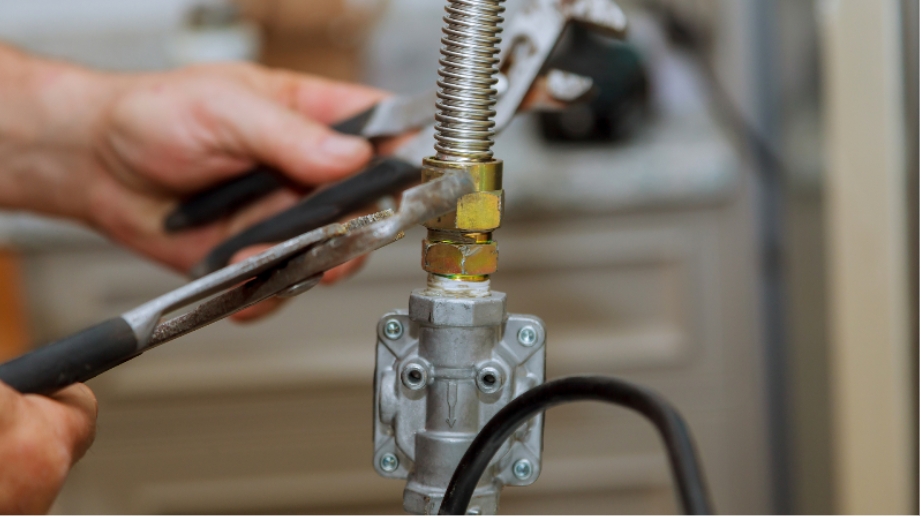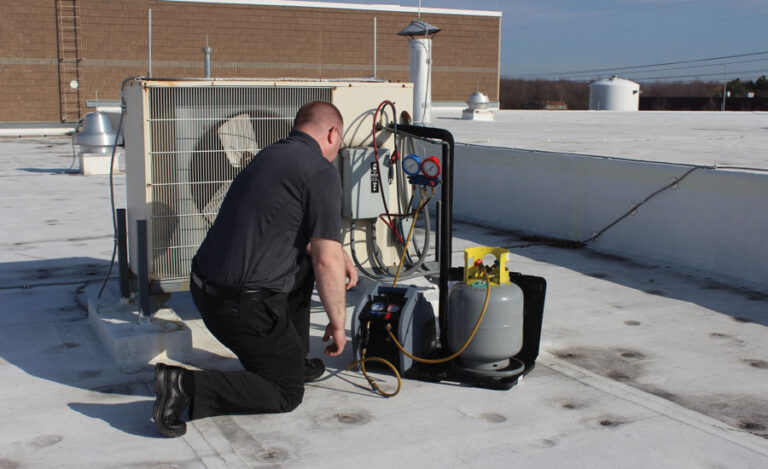Gas Leak Warning Signs You Should Never Ignore
Gas leaks are a serious and potentially deadly hazard in any home or business. Whether you’re using natural gas for heating, cooking, or other utilities, the presence of a gas leak can lead to catastrophic consequences if not detected and addressed promptly. Understanding the warning signs of a gas leak can be the difference between life and death. Additionally, it’s important to be aware of the Landlord Gas Safety Certificate Cost, as this certificate is crucial for ensuring that your property is safe from gas-related dangers. In this blog, we’ll explore the key indicators of a gas leak and why you should never ignore them.
The Dangers of Gas Leaks
Gas leaks are insidious because they can occur without immediate detection. Natural gas is odorless and colorless, which makes it difficult to notice without the artificial additives that utility companies include to help detect leaks. Even with these additives, many people may not be aware of the subtle signs that indicate a gas leak.
The dangers of a gas leak are multifaceted. Inhaling natural gas can cause health issues, including headaches, dizziness, nausea, and, in extreme cases, unconsciousness or death. Furthermore, gas leaks are a significant fire hazard. A single spark can ignite the gas in the air, leading to explosions that can cause severe property damage and loss of life.
Recognizing the Smell of Gas
One of the most common warning signs of a gas leak is the distinctive odor of rotten eggs. This smell is not naturally present in natural gas but is added as a safety measure. If you ever notice this foul smell in your home or workplace, it’s a clear indication that there may be a gas leak.
It’s important not to dismiss this smell as something minor or unrelated. Many people make the mistake of thinking the odor is coming from something else, such as a nearby drain or garbage disposal. However, if the smell persists or is particularly strong, it’s crucial to take immediate action.
Unusual Sounds Near Gas Appliances
Another warning sign of a gas leak is unusual sounds near your gas appliances. You may hear hissing, whistling, or even a roaring noise around your stove, furnace, water heater, or other gas-powered equipment. These sounds are often caused by gas escaping from a damaged or improperly sealed pipe or connection.
If you hear such noises, it’s essential to investigate further. Never ignore these sounds, as they can indicate a significant leak that could lead to an explosion or other dangerous situation.
Dead or Dying Vegetation
If you notice patches of dead or dying vegetation in your yard, especially near gas lines, this could be a sign of a gas leak. Natural gas can prevent plants from absorbing oxygen, causing them to wither and die. This is particularly telling if the rest of your garden or lawn is healthy.
While dead plants can occur for many reasons, such as disease or pests, a sudden and unexplained die-off near gas lines should not be taken lightly. It may indicate that gas is leaking from an underground pipe and poisoning the soil.
Physical Symptoms of Gas Exposure
Exposure to a gas leak can have immediate effects on your health. Common physical symptoms include headaches, dizziness, nausea, fatigue, and breathing difficulties. These symptoms may be subtle at first but can quickly worsen if the exposure continues.
In more severe cases, you may experience confusion, loss of coordination, or even unconsciousness. If multiple people in the same environment are experiencing these symptoms simultaneously, this is a strong indicator of a gas leak. It’s crucial to leave the area immediately and seek fresh air.
Gas leaks can pose serious safety risks, making it crucial to recognize the warning signs early. Common indicators include a distinct sulfur smell, hissing sounds near gas lines, and dead or dying vegetation around pipelines. If you suspect a leak, it’s essential to contact your gas provider, like gassouth, immediately for assistance and guidance on ensuring your safety.
High Gas Bills
A sudden and unexplained increase in your gas bill can be another warning sign of a leak. If your gas usage hasn’t changed but your bill has spiked, it’s possible that gas is escaping from your system. While a higher bill might seem like a financial inconvenience, it’s actually a sign that should not be ignored, as it could indicate a potentially dangerous situation.
Bubbles in Water
If you notice bubbles in standing water on your property, such as puddles or small ponds, this could be a sign of a gas leak. Gas escaping from an underground pipe can make its way through the soil and into water, causing bubbles to form. This is especially common in areas where the soil is saturated with water.
While bubbles in water can sometimes be caused by other factors, such as decaying organic matter, it’s worth investigating further if you notice this phenomenon near your home or business.
A Hazy or Misty Appearance Indoors
In some cases, a gas leak can cause a hazy or misty appearance in your home. This can be due to the gas mixing with the air and creating a visible cloud. This is a very serious sign of a gas leak and should prompt immediate action.
If you notice an unusual haze in your home, evacuate immediately and contact your gas company or emergency services. Do not attempt to locate the source of the leak yourself, as this could lead to a dangerous explosion.
Preventative Measures
While it’s important to recognize the warning signs of a gas leak, prevention is always the best strategy. Regularly inspecting your gas appliances, pipes, and connections can help you identify potential issues before they become dangerous. Ensure that all gas-powered equipment is properly maintained and serviced by a qualified professional.
Additionally, installing a gas detector in your home can provide an added layer of protection. These devices can alert you to the presence of gas even if you don’t notice the other warning signs.
Conclusion
Gas leaks are a serious hazard that should never be ignored. By being aware of the warning signs, such as the smell of gas, unusual sounds, dead vegetation, physical symptoms, high gas bills, bubbles in water, and a hazy appearance indoors, you can protect yourself, your family, and your property from the dangers of a gas leak. Always take immediate action if you suspect a gas leak, and prioritize regular maintenance and inspection of your gas appliances and systems to prevent leaks from occurring in the first place. For peace of mind, consider obtaining an EICR Cert, which provides landlord safety certificates, ensuring that your property meets all safety standards. Remember, when it comes to gas leaks, it’s always better to be safe than sorry, If you want to stay updated with posts like this, please follow us on Green Cric.





